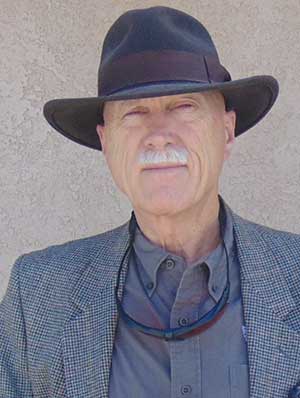By Dean Weingarten

Arizona – -(Ammoland.com)-On 14 December, 2016, a three judge panel of the Ninth Circuit Court of Appeals reversed the District Court ruling in Silvester v. Harris. In the original decision, the District Court ruled that requiring a gun owner who had already passed a background check, and who either already owned a registered gun or had a concealed carry permit, to wait an additional period to receive another firearm, was an infringement on the Second Amendment right to keep and bear arms. The Ninth Circuit held that a 10 day waiting period was a “reasonable safety precaution”. From the decision at uscourts.gov(pdf):
The panel reversed the district court’s bench trial judgment and remanded for entry of judgment in favor of the state of California in an action challenging a California law establishing a 10-day waiting period for all lawful purchases of guns. The panel first stated that this case was a challenge to the application of the full 10-day waiting period to those purchasers who have previously purchased a firearm or have a permit to carry a concealed weapon, and who clear a background check in less than ten days. The panel held that the ten-day waiting period is a reasonable safety precaution for all purchasers of firearms and need not be suspended once a purchaser has been approved. The panel determined that it need not decide whether the regulation was sufficiently longstanding to be presumed lawful. Applying intermediate scrutiny analysis, the panel held that the law does not violate plaintiff’s Second Amendment rights because the ten-day wait is a reasonable precaution for the purchase of a second or third weapon, as well as for a first purchase.
The decision claims this reasoning is under the “intermediate scrutiny” standard. But it is clear that “intermediate scrutiny” has simply become another name for “rational basis” which is virtually no standard at all. Here is another snippet. From sanluisobispo.com:
But 9th Circuit Judge Mary Schroeder said the waiting period makes sense, for example, for someone who already owns a hunting rifle but may want to buy a larger-capacity weapon that will do more damage when fired into a crowd.
“A 10-day cooling-off period would serve to discourage such conduct and would impose no serious burden on the core Second Amendment right of defense of the home,” she said.
Using the rational of the Court, it is hard to see that there is any limit on the waiting period that could be imposed. If a 10 day limit is not a serious burden, why not a 20 day, or a 40 day, or a year? The court did not ask for or receive any evidence that the presumed “rational” argument had any substance, had ever happened, or if any studies had ever been done to find out.
The Crime Prevention Research Center filed an amicus breif in the orginal case. From the brief:
Despite assertions that the benefits from waiting periods and background checks are obvious, the complete lack of empirical studies to support those claims is stark. No evidence is offered that either of these laws reduce violent crime, nor that they reduce overall suicide rates. Even more striking, the discussions that Appellant and amici use are not relevant to the case before the court.
The Ninth Circuit seems determined to uphold as many infringements on the Second Amendment as it can, until stopped by the Supreme Court. Until a new justice is appointed to replace Justice Scalia, it is unlikely that the Supreme Court will accept an appeal, or reverse the Ninth Circuit’s decisions on the Second Amendment.
©2016 by Dean Weingarten: Permission to share is granted when this notice is included.
About Dean Weingarten;
Dean Weingarten has been a peace officer, a military officer, was on the University of Wisconsin Pistol Team for four years, and was first certified to teach firearms safety in 1973. He taught the Arizona concealed carry course for fifteen years until the goal of constitutional carry was attained. He has degrees in meteorology and mining engineering, and recently retired from the Department of Defense after a 30 year career in Army Research, Development, Testing, and Evaluation.
